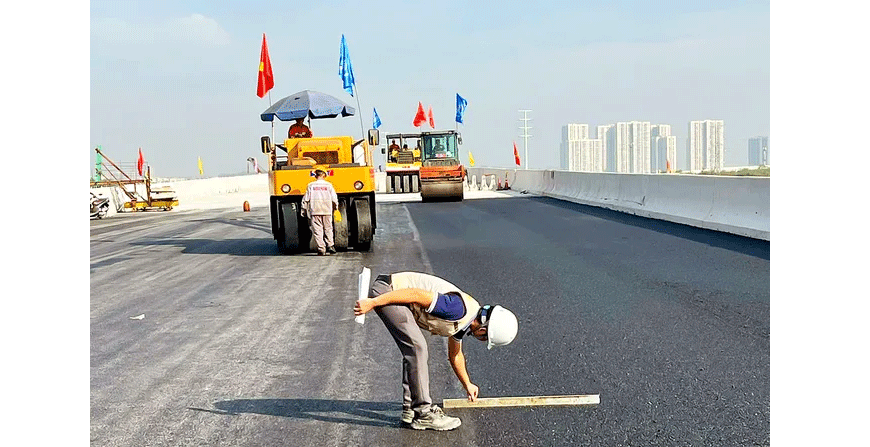Digital transformation in hospitals currently involves the intelligent exam department, medical e-records, and the internal management portal for administrative purposes like assigning and monitoring tasks.
The portal enables internal procedures to be completed on any connected mobile device. These activities are dependent on 3 bases: the software, the framework, and confidentiality. One application of digital transformation in hospitals can be found in medical declaration.
As observed at HCMC hospitals, a common software for medical declaration was issued by the Department of Health around March 2021. Accordingly, medical declaration can be done via QR codes instead of a written form.
Hospital visitors are required to declare personal info on the Zalo messaging app after scanning a QR code at reception. Their info is recorded after the first medical declaration, and subsequent ones would only take under 1 minute.
Pham Ngoc Thach Hospital is a member of the digital patient management network established by Vietnam’s National Tuberculosis (TB) Control Program. The online system allows doctors to look up patients’ medical history and give a suitable prescription.
M.D. Nguyen Thien Minh, Head of Quality Control, Pham Ngoc Thach Hospital, said that the hospital has been a part of the national TB prevention program for many years, so we have experience in digitalizing medical records.
Pham Ngoc Thach Hospital is in the third phase of Circular 54 by the Ministry of Health on the implementation of electronic medical records. Circulars 54 and 27 require all level 1 hospitals to prepare adequate infrastructure and software for electronic medical records to be put into use from 2024 to 2028.
Meanwhile, Hung Vuong Hospital expects to complete its software for general medical exams in 2021. By then, patients’ medical history will be archived and made available to them, along with doctors’ schedule to help them pick suitable times to come in for checkups.
M.D., Dr. Hoang Thi Diem Tuyet, Director of Hung Vuong Hospital, said that e-records for the inpatient sector are being prepared and expected to be ready for approval in 2021. It will help save time for medical staff and reduce human errors. Records from different departments will also be interlinked. A complete network of e-records will help HCMC hospitals work together better.
A potential setback is that each medical facility is building an internal record network based on their own needs and circumstances, which might not be compatible with those from other facilities, she said.
For example, two distinct maternity hospitals cannot implement each other’s system since their procedures are different, though they may follow the same treatment plan. There is currently no shared software that every facility can use.
In addition, there needs to be a significant budget for the software, framework and network security.
Funding for digital transformation is often the career development fund of each hospital, which needs to be approved by higher bureaus with regards to the annual capital plan.
According to Ms. Tuyet, the hospital looks forward to beneficial policies from the Ministry and Department of Health to help medical facilities establish a career development fund.
Thu Duc City Hospital, formerly Thu Duc District Hospital, is the first in HCMC to implement electronic medical records. All medical procedures here have been digitally integrated, from medical exam registration to treatment and to prescriptions.
Regarding the efficiency of e-records, the hospital in 2018 saved nearly half the time to prepare records after going digital by 86 percent, while also saving printing costs.
In addition, e-records ensure doctors’ orders are transmitted accurately, and can archive patient data for life. The hospital has seen an increasing number of patients after the digital transformation.
There were 3,000 daily patients to Thu Duc Hospital in 2014, and 6,000 each day as of 2021.
M.D. Huynh My Thu, Head of Quality Control at Thu Duc City Hospital, said that after 6 years of operation, the hospital's capacity is currently at 1,000 hospital beds and it plans to expand the scale of operation. It is expected that infrastructure upgrades will be completed in 2021, and components of the e-record system in 2025.
The successful digital transformation at Thu Duc City Hospital has saved costs and accommodated better service. HCMC medical facilities pushing digital integration is an appropriate move in this day and age.

)






















